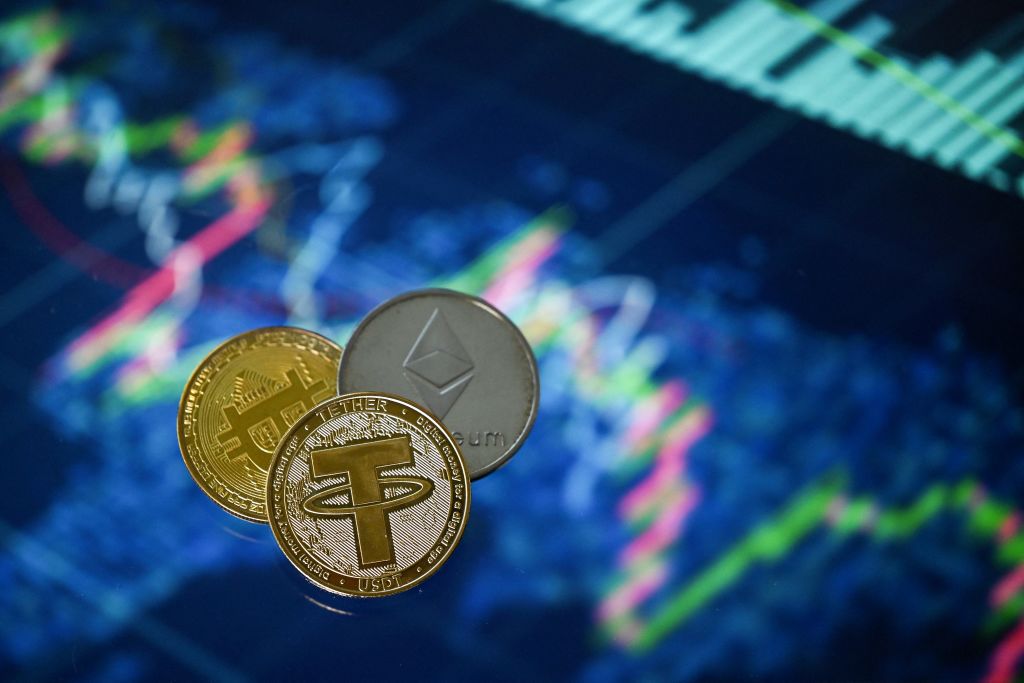Boko Haram terrorists have turned to cryptocurrencies, mobile money platforms and other digital tools to transfer millions of dollars, much of which it acquires using ransoms, looting and extorted cash “donations” known as zakat.
Observers describe cryptocurrency and other digital financing methods as a “blind spot” in the fight against terrorism.
“Boko Haram leverages cryptocurrency’s decentralized nature to fund its low-cost but deadly operations, including weapons and logistics,” analyst Oge Samuel Okonkwo wrote recently for the website Medium. “Nigeria’s robust crypto market, driven by economic necessity, facilitates this threat.”
By some estimates, about a third of Nigeria’s 200 million people use some form of digital currency, often for everyday expenses such as bill payments, mobile phone credit and retail purchases.
Between July 2023 and June 2024, Nigerians traded $59 billion in cryptocurrency, according to Chain Analysis, a company that tracks the industry. Nigerians, like many residents of Sub-Saharan Africa, have turned to digital currencies in part due to the instability of their own national currencies.
In 2021, the government banned banks from conducting transactions using digital currencies even as it created its own digital currency, the eNaira, that ultimately failed to catch on. The banking crackdown sent Nigerians to peer-to-peer money systems to conduct cryptocurrency transactions.
Cryptocurrencies have long been criticized for their potential to be used to hide money laundering and other crimes. Okonkwo notes that Nigeria’s largely unregulated peer-to-peer digital transactions help Boko Haram receive funding from local and international sources while avoiding scrutiny that could come from using a bank.
Experts say cryptocurrency is easily transferred digitally, a key feature for groups such as Boko Haram, which operates across the borders of Lake Chad Basin nations.
“Boko Haram’s adaptation to digital technologies has significantly enhanced its capacity to finance terrorism in Nigeria,” researcher Abraham Ename Minko wrote recently for the Global Network on Extremism and Technology. “The evolution of Boko Haram’s financing strategies, particularly through digital platforms, underscores the complex interplay between technology and terrorism in Nigeria.”
By using cryptocurrency to conduct business, Boko Haram can leverage digital currencies’ anonymity and efficiency. In the process, the group complicates law enforcement’s ability to track and disrupt its illicit money flows, Minko added.
The anonymity has allowed Boko Haram to recruit unwitting accomplices, including nongovernmental organizations, to trade currencies on its behalf, effectively laundering its money through innocent parties.
Nigeria’s financial regulators froze more than 1,100 bank accounts that were tied to terrorist financing in 2024. They also launched a campaign to warn young cryptocurrency traders that their transactions could be supporting Boko Haram and other terrorist groups.
Recent investigations have found that Boko Haram operatives use unregulated exchange bureaus and online point-of-sale technology to move money.
Authorities have had limited success in breaking up Boko Haram’s digital financing schemes. In July 2024, Nigerian courts convicted 85 Boko Haram members of financing terrorism. In 2020, the United Arab Emirates convicted six Nigerians of funneling more than $780,000 to Boko Haram using cryptocurrency.
The fight to disrupt Boko Haram’s financing is further complicated by a lack of coordination between financial regulators and law enforcement. Bankers, too, have been unable to address some of the real-world methods Boko Haram uses to fund its cryptocurrency network, according to investigators.
Ultimately, shutting down Boko Haram’s finances will mean strengthening banking regulations and identifying the group’s cryptocurrency transactions among the millions happening every day in Nigeria. By targeting Boko Haram’s cryptocurrency connections, Nigerian authorities also can hobble the group’s terrorism, according to Okonkwo.
“Through robust regulations, advanced technology, regional partnerships, and socioeconomic reforms, Nigeria can dismantle this financial lifeline,” Okonkwo wrote. “Disrupting cryptocurrency funding is critical to reducing Boko Haram’s capacity for violence.”

